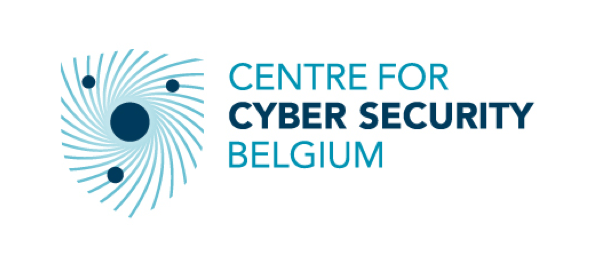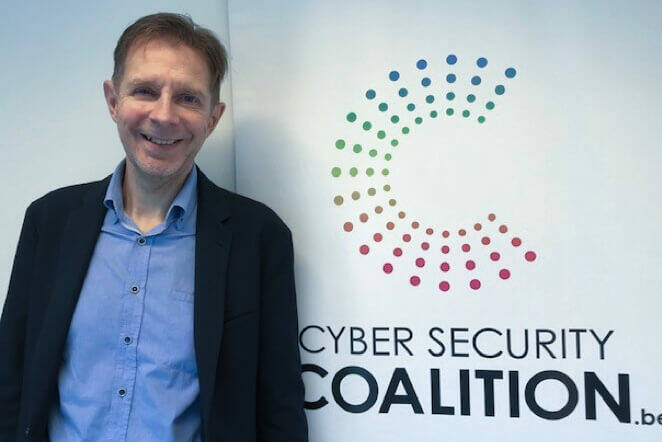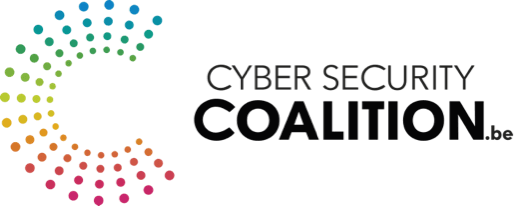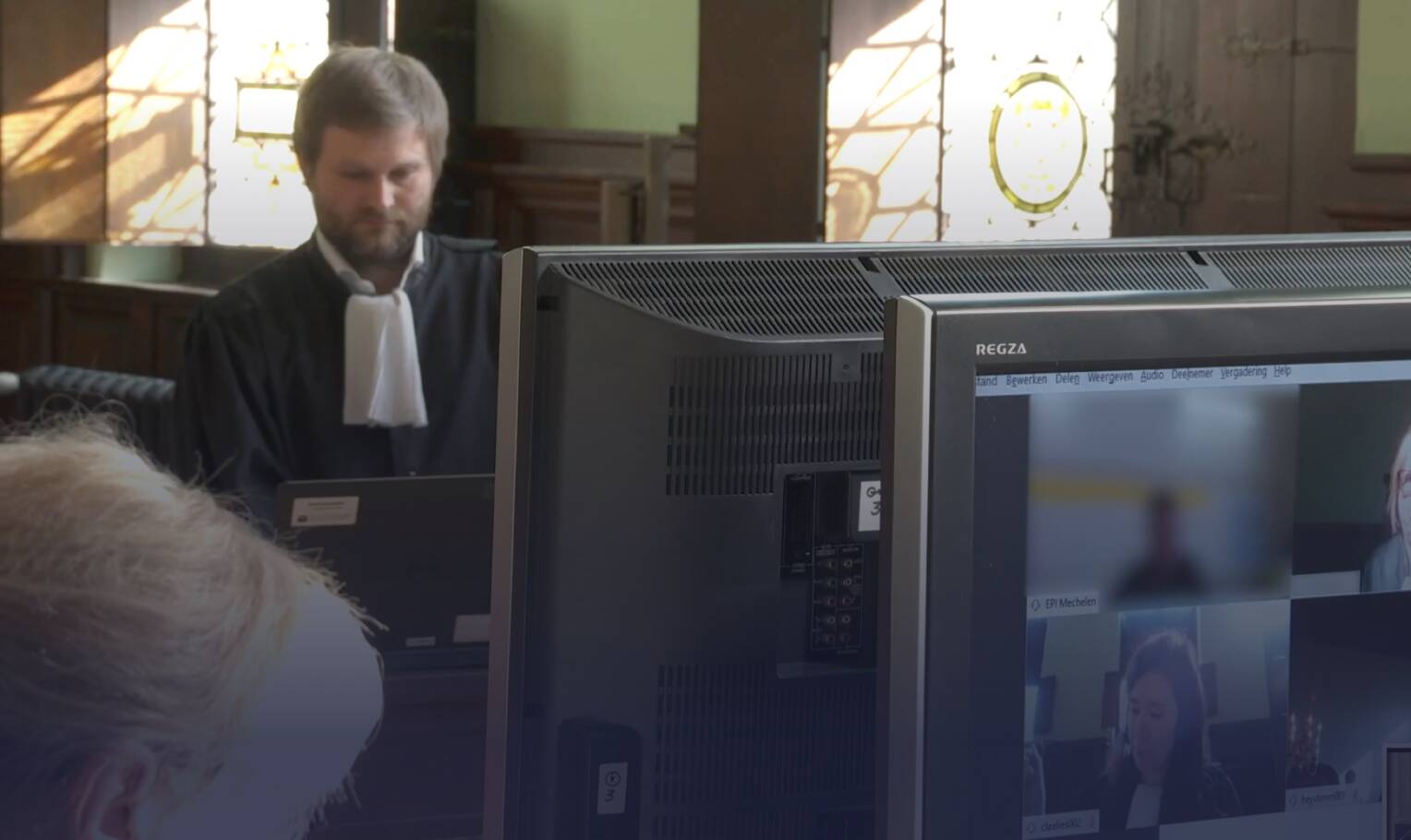
Cybersecurity in Belgium
Joining forces
against cybercrime
A linear security response to the exponential growth of cybercrime is not enough. The Center for Cybersecurity Belgium and the Cybersecurity Coalition supervise and advise Belgian organizations on how to secure their IT infrastructure.


The Centre for Cybersecurity Belgium is a federal administration, under the authority of the Prime Minister, charged with coordinating cybersecurity policy in Belgium.

The Cyber Security Coalition was founded in 2015 with a clear goal: to strengthen the resilience of Belgian organizations against cybercrime. The coalition does this by developing a national ecosystem that companies, academic partners and government institutions can join. Proximus is one of the founding members and an important driving force behind the coalition.

Read the full article
Cathy Suykens and Christian Mathijs on the work of the Cyber Security Coalition.
Everyone is a target
Cybercriminals aren’t exactly picky: every organization is a potential target. “The demand for information remains high,” says Cathy Suykens. That’s why the Coalition is putting its weight behind the Safe-on-Web app in order to create broad support for this new initiative of the Belgian Center for Cyber Security. “That app already warns private individuals of possible dangers,” Cathy explained. “In the autumn, the CCB will launch a version aimed at companies.” Companies will be informed more quickly via the app about new attacks with phishing or ransomware.
Christian Mathijs, Business Development Manager at the Cyber Security Coalition
Miguel De Bruycker, Director of CCB
“I see a key role for certification so that we can assess which requirements a particular infrastructure meets or doesn’t meet.”
Cathy Suykens
worked at KBC for 28 years. Today she is Operations Manager at the Cyber Security Coalition.

“Within the coalition the members exchange information and experiences in closed focus groups with a lot of confidential information.”
Exchange of experience
The Cyber Security Coalition is a unique partnership in which players from academia, public authorities, and the private sector join forces in the fight against cybercrime. “As a member of the Cyber Security Coalition, you make a clear commitment,” says Operations Manager Cathy Suykens. “You actively contribute to the exchange of experience and you do so without a commercial purpose.” In this way, membership of the Cyber Security Coalition also says something about the members themselves. “First of all, they gain new insights, thereby raising the level of their own cybersecurity. They are informed more quickly in the event of incidents or possible threats, among other things. But equally, membership signifies a clear sense of social responsibility.”
Within the coalition, members exchange information and experiences in about ten focus groups. “We offer a unique formula there,” says Business Development Manager Christian Mathijs. “It's precisely because these are closed sessions that the members receive a lot of confidential information first hand. Recently there was a cybersecurity problem at a large IT supplier and specialists from that company personally came to give information and explanations in one of our focus groups.” This is one of the major benefits for the members of the coalition: the lines to the correct information sources are usually very short.
In addition, the Cyber Security Coalition also shares information with the entire business world. “For example, our cybersecurity guidelines for SME are freely available on the website,” said Christian. A focus group led by Proximus is currently working on a general blueprint for cybersecurity architects. “That information will also be publicly available.”
Read the full interview
Develop expertise
In order to improve the cybersecurity of our infrastructure, we have to focus on innovation, according to the CCB. “We need to develop more expertise, via colleges, universities, and other institutions. I also see a key role for certification so that we can assess which requirements a particular infrastructure meets or doesn’t meet.” But it is just as important to provide targeted support to IT users. “We do this not only via awareness campaigns,” said De Bruycker, “but also through the best-practice standards we share with companies. In that context, the CCB is also an active member of the Cyber Security Coalition.”
Fill out the cybersecurity survey
We join forces and use our knowledge to stand stronger against cybercrime.

Miguel De Bruycker
studied applied information technology at VUB. He worked for 30 years at the Ministry of Defense as Head of Cyber Defense and in other positions. He has been the Director of CCB since 2015.

Greater focus on IoT
One of the main challenges remains the fact that cybersecurity is a moving target. “You have to deploy your resources at the right time and in the right place,” said De Bruycker. “There are relatively few incidents on common operating systems – such as Windows or iOS – that have been correctly updated. As a result, cybercriminals target other, more vulnerable links in the whole chain.” The Internet of Things is a clear target. “We are still seeing a lot of connected devices that don’t receive automatic security updates. It’s an area that deserves more attention.”
If real-life incidents occur, CERT.be (Computer Emergency Response Team) will take action. This is the operational service of the CCB that detects, observes, analyzes, and reports on online security problems. CERT.be primarily helps providers of essential services and critical infrastructure, but ‘ordinary’ companies can also contact the organization in certain circumstances.
Phishing campaign
The CCB helps companies, the government, providers of essential services, and the public to protect themselves and their information. The CCB conducts awareness campaigns aimed at both businesses and consumers. “This year, the focus is on raising awareness about the dangers of phishing,” says Director Miguel De Bruycker. Anyone who notices a suspicious message can forward it to verdacht@safeonweb.be. “We now receive about 12,500 messages a day.”
Understanding the risks
The Centre for Cybersecurity Belgium (CCB) is the national authority for cybersecurity in the country. The CCB supervises, coordinates and monitors the application of the Belgian cybersecurity strategy. “We have to work on different fronts,” says De Bruycker. “To use an analogy, it’s not enough to equip a car with all kinds of safety equipment, you also have to teach the driver to drive sensibly.” That’s exactly what the CCB is aiming for. “Obviously, it’s important that companies strengthen the security of their IT infrastructure. But they also have to teach their employees to understand the potential risks they’re dealing with.”

has worked at Proximus for almost 33 years. Today he is Business Development Manager at the Cyber Security Coalition.
Christian Mathijs

A linear security response to the exponential growth of cybercrime is not enough. The Center for Cybersecurity Belgium and the Cybersecurity Coalition supervise and advise Belgian organizations on how to secure their IT infrastructure.
against cybercrime
Joining forces
Cybersecurity in Belgium

Read the full interview
In order to improve the cybersecurity of our infrastructure, we have to focus on innovation, according to the CCB. “We need to develop more expertise, via colleges, universities, and other institutions. I also see a key role for certification so that we can assess which requirements a particular infrastructure meets or doesn’t meet.” But it is just as important to provide targeted support to IT users. “We do this not only via awareness campaigns,” said De Bruycker, “but also through the best-practice standards we share with companies. In that context, the CCB is also an active member of the Cyber Security Coalition.”
Develop expertise
Cybercriminals aren’t exactly picky: every organization is a potential target. “The demand for information remains high,” says Cathy Suykens. That’s why the Coalition is putting its weight behind the Safe-on-Web app in order to create broad support for this new initiative of the Belgian Center for Cyber Security. “That app already warns private individuals of possible dangers,” Cathy explained. “In the autumn, the CCB will launch a version aimed at companies.” Companies will be informed more quickly via the app about new attacks with phishing or ransomware.
Everyone is a target
The Cyber Security Coalition was founded in 2015 with a clear goal: to strengthen the resilience of Belgian organizations against cybercrime. The coalition does this by developing a national ecosystem that companies, academic partners and government institutions can join. Proximus is one of the founding members and an important driving force behind the coalition.

The Centre for Cybersecurity Belgium is a federal administration, under the authority of the Prime Minister, charged with coordinating cybersecurity policy in Belgium.

Read the full article
Cathy Suykens and Christian Mathijs on the work of the Cyber Security Coalition.
Christian Mathijs, Business Development Manager at the Cyber Security Coalition
“Within the coalition the members exchange information and experiences in closed focus groups with a lot of confidential information.”

Cathy Suykens
worked at KBC for 28 years. Today she is Operations Manager at the Cyber Security Coalition.
The Cyber Security Coalition is a unique partnership in which players from academia, public authorities, and the private sector join forces in the fight against cybercrime. “As a member of the Cyber Security Coalition, you make a clear commitment,” says Operations Manager Cathy Suykens. “You actively contribute to the exchange of experience and you do so without a commercial purpose.” In this way, membership of the Cyber Security Coalition also says something about the members themselves. “First of all, they gain new insights, thereby raising the level of their own cybersecurity. They are informed more quickly in the event of incidents or possible threats, among other things. But equally, membership signifies a clear sense of social responsibility.”
Within the coalition, members exchange information and experiences in about ten focus groups. “We offer a unique formula there,” says Business Development Manager Christian Mathijs. “It's precisely because these are closed sessions that the members receive a lot of confidential information first hand. Recently there was a cybersecurity problem at a large IT supplier and specialists from that company personally came to give information and explanations in one of our focus groups.” This is one of the major benefits for the members of the coalition: the lines to the correct information sources are usually very short.
In addition, the Cyber Security Coalition also shares information with the entire business world. “For example, our cybersecurity guidelines for SME are freely available on the website,” said Christian. A focus group led by Proximus is currently working on a general blueprint for cybersecurity architects. “That information will also be publicly available.”
Exchange of experience
Miguel De Bruycker, Director of CCB
“I see a key role for certification so that we can assess which requirements a particular infrastructure meets or doesn’t meet.”

One of the main challenges remains the fact that cybersecurity is a moving target. “You have to deploy your resources at the right time and in the right place,” said De Bruycker. “There are relatively few incidents on common operating systems – such as Windows or iOS – that have been correctly updated. As a result, cybercriminals target other, more vulnerable links in the whole chain.” The Internet of Things is a clear target. “We are still seeing a lot of connected devices that don’t receive automatic security updates. It’s an area that deserves more attention.”
If real-life incidents occur, CERT.be (Computer Emergency Response Team) will take action. This is the operational service of the CCB that detects, observes, analyzes, and reports on online security problems. CERT.be primarily helps providers of essential services and critical infrastructure, but ‘ordinary’ companies can also contact the organization in certain circumstances.
Greater focus on IoT
The CCB helps companies, the government, providers of essential services, and the public to protect themselves and their information. The CCB conducts awareness campaigns aimed at both businesses and consumers. “This year, the focus is on raising awareness about the dangers of phishing,” says Director Miguel De Bruycker. Anyone who notices a suspicious message can forward it to verdacht@safeonweb.be. “We now receive about 12,500 messages a day.”
Phishing campaign
The Centre for Cybersecurity Belgium (CCB) is the national authority for cybersecurity in the country. The CCB supervises, coordinates and monitors the application of the Belgian cybersecurity strategy. “We have to work on different fronts,” says De Bruycker. “To use an analogy, it’s not enough to equip a car with all kinds of safety equipment, you also have to teach the driver to drive sensibly.” That’s exactly what the CCB is aiming for. “Obviously, it’s important that companies strengthen the security of their IT infrastructure. But they also have to teach their employees to understand the potential risks they’re dealing with.”
Understanding the risks
Fill out the cybersecurity survey
We join forces and use our knowledge to stand stronger against cybercrime.

has worked at Proximus for almost 33 years. Today he is Business Development Manager at the Cyber Security Coalition.
Christian Mathijs


Miguel De Bruycker
studied applied information technology at VUB. He worked for 30 years at the Ministry of Defense as Head of Cyber Defense and in other positions. He has been the Director of CCB since 2015.
